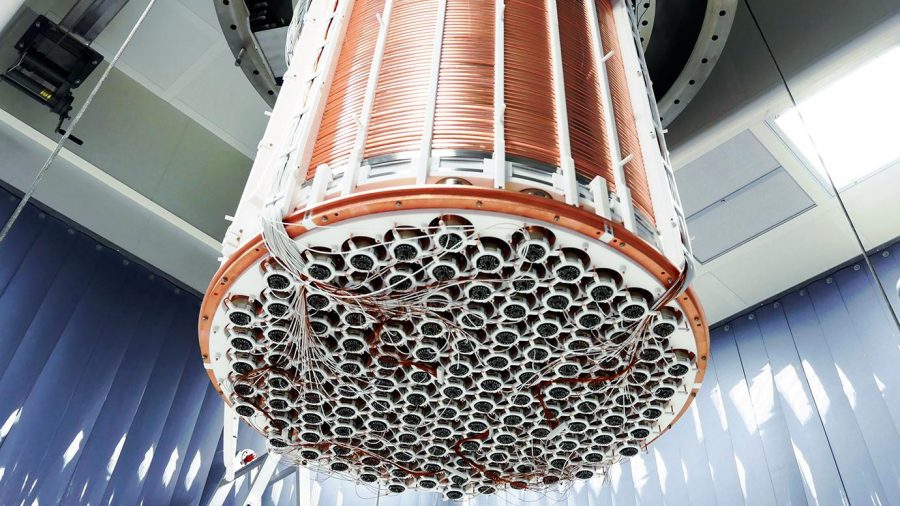
The XENON collaboration has utilized the Pegasus workflow management system for a number of years for their Monte Carlo simulations. In XENON1T, these simulations allowed for a very careful characterization of the expected backgrounds and played a crucial role in the interpretation of the experimental results, both for the 2nDEC paper as well as for the primary dark matter search. A wide range of astronomical and astrophysical observations indicates that the Universe contains about 5 times more matter than what we can account for. This dark matter is thought to be a new and exotic form of matter, behaving differently from ordinary matter we are accustomed to (which is made up of electrons, protons and neutrons). While we know dark matter is out there, it continues to escape direct detection – even for detectors as sensitive as XENON1T (which is presently leading the field).
To stay in the lead in this exciting race, the XENON collaboration is now building a new larger detector called XENONnT that, based on simulations run through the Pegasus framework, is expected to be about an order of magnitude more sensitive to dark matter.
“The XENON Collaboration is extremely satisfied by the efficiency of the Pegasus workflow and decided to jump on it also for the analysis of the data that will be acquired with XENONnT, expected to be of the order of 1.5 PB/year,” says Luca Grandi, co-PI on the project and assistant professor at University of Chicago, where he leads the Grandi Lab (https://grandilab.uchicago.edu/). The new XENONnT data pipeline, still under development, will combine Pegasus with a new and faster data processor and enforce a tighter integration with the data manager (Rucio). This is expected to provide a more manageable workflow with improved capabilities.

The XENON workflows are run from via the OSG Connect (https://osgconnect.net/) infrastructure, with additional services and support provided by the Enrico Fermi Institute at the University of Chicago.
The Pegasus team is looking forward to a continued successful collaboration with XENON.
For more information about the XENON collaboration, please see: http://www.xenon1t.org/